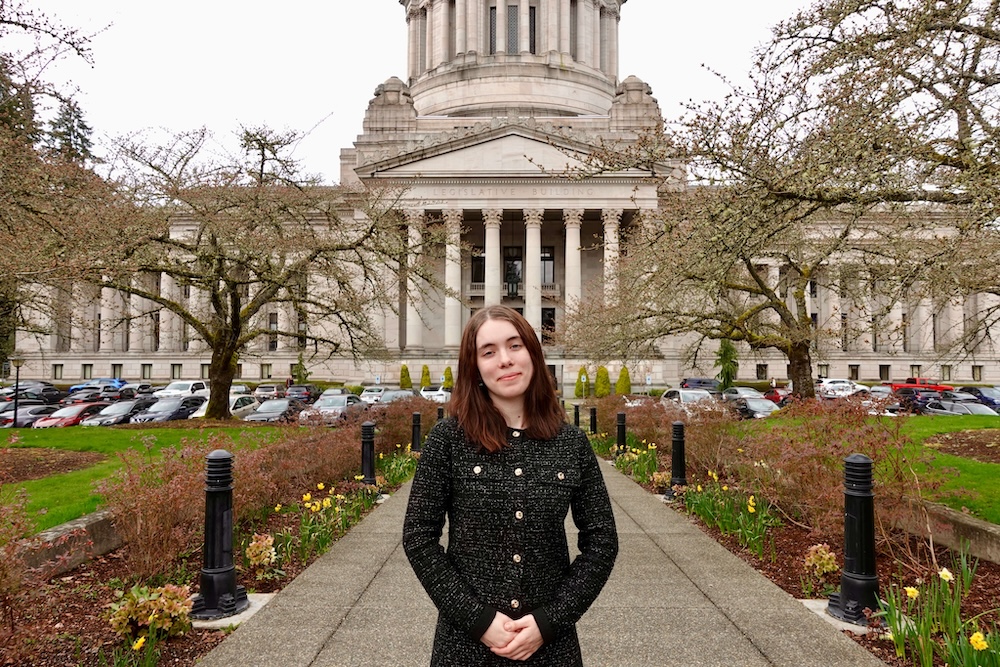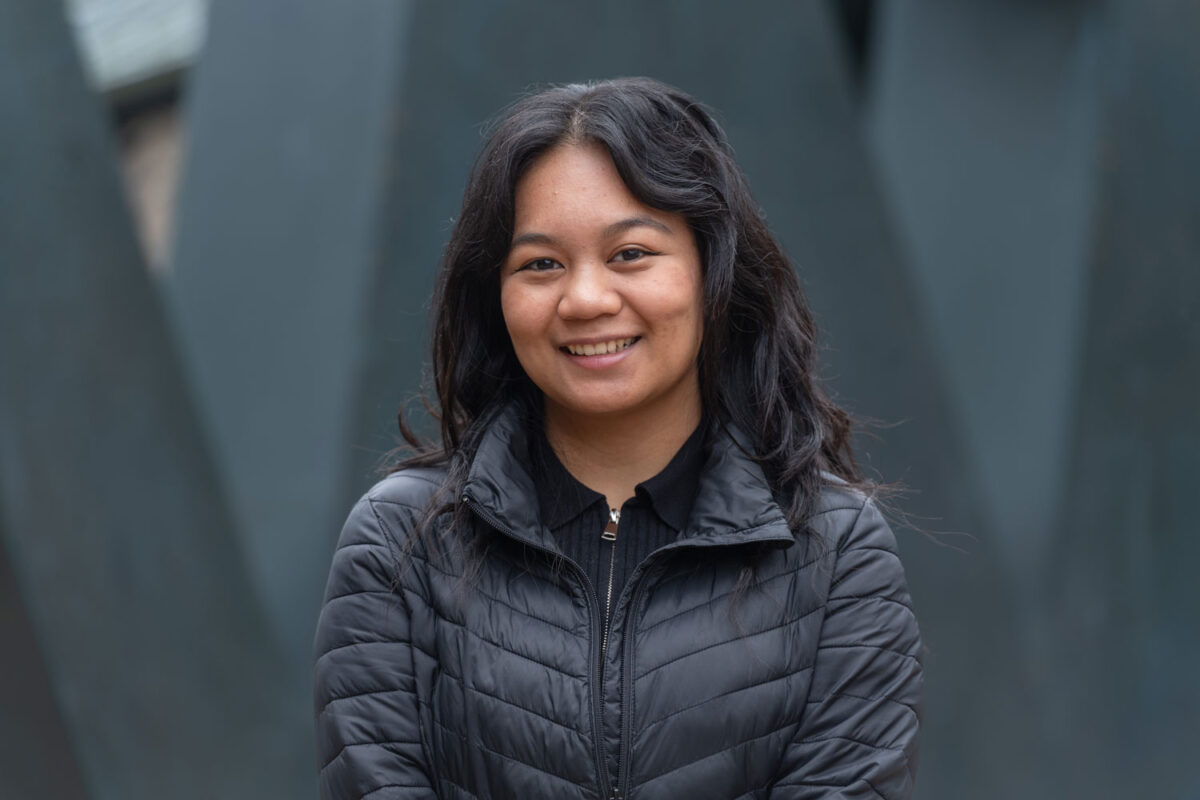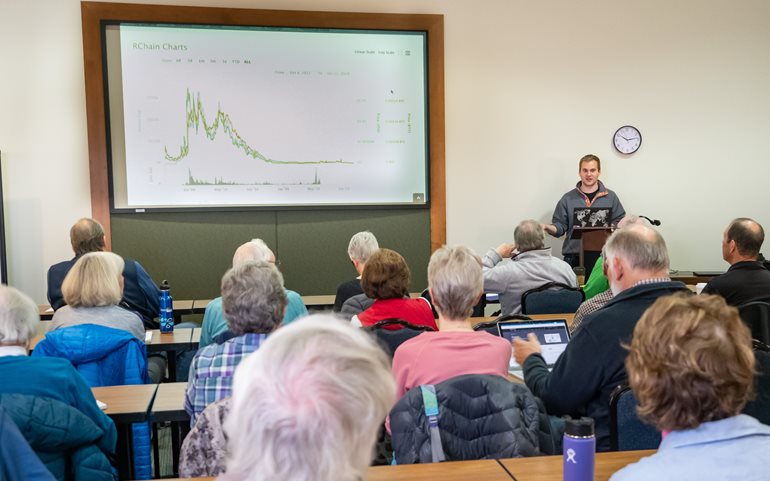
By Douglas Esser
Bitcoin is baffling. Is it a boom and bust digital investment or the new way to buy pizza? It is a cryptocurrency that has something to do with blockchain, right? But doesn’t blockchain have other applications?
To make sense of these emerging technologies, we could really use someone to present a Blockchain and Bitcoin 101.
Well, there is such a course. It is offered through the Osher Lifelong Learning Institute at the University of Washington, which presents classes to seniors over the age of 50.
The instructor for the course on four Saturdays this October in Redmond was another senior — a University of Washington Bothell student in his last year of undergraduate studies.
Zack Nelson is also the president and co-founder of the student club, UW Blockchain Society.
Interactive, intergenerational
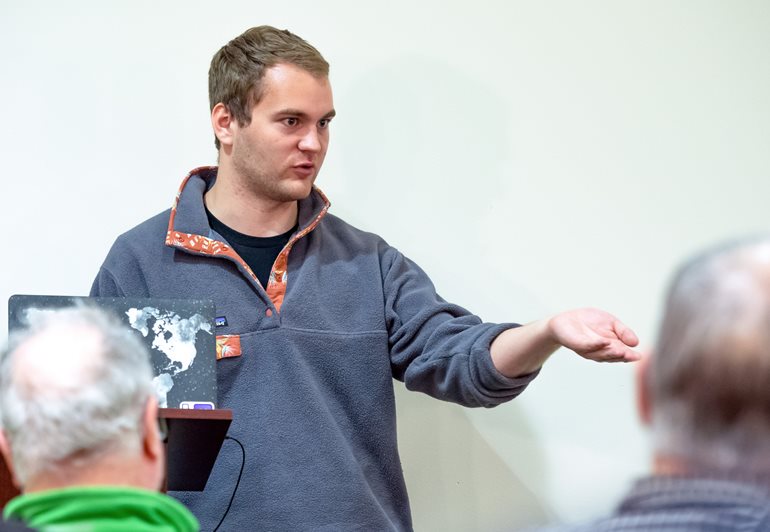
Nelson and members of the Osher class of about 40 people engaged the questions together. The students said their lively interactions helped make it an exceptional experience.
First, consider the seniors who met at the Trilogy at Redmond Ridge community, “a fairly affluent area of well-educated professionals,” observed one resident, Kipp Barker. Others came from throughout the Seattle area and had a lot of business experience in their professional lives. “Some of these people know a lot about currency transactions. There’s a lot of knowledge here,” said Richard Fogerty.
Second, consider the instructor. Nelson started a club that has grown to include about 1,200 members across all three UW campuses — Bothell, Seattle and Tacoma. He also has interned or worked with companies implementing blockchain. And, he’s spoken at campuses and attended conferences on the topic around the world.
Nelson knows his blockchain, but an ability to connect with people who are three decades his senior made the class special.
“Zack allows interaction, encourages questions. The material presented can be conceptually difficult, but he does it in a way that allows us to understand it better,” said Barker.
“I’ve taken a number of courses and this is much more interactive than the average course,” said Fogerty. “There are many teachers who say they want to hear questions, but their body language and the way they conduct themselves lets you know you’re a pain. Whereas Zack makes you feel like the questions are part of the course. You’re actually helping bring the momentum of the group forward. That’s an unusual gift.”
Currency crypto, innovation apparent
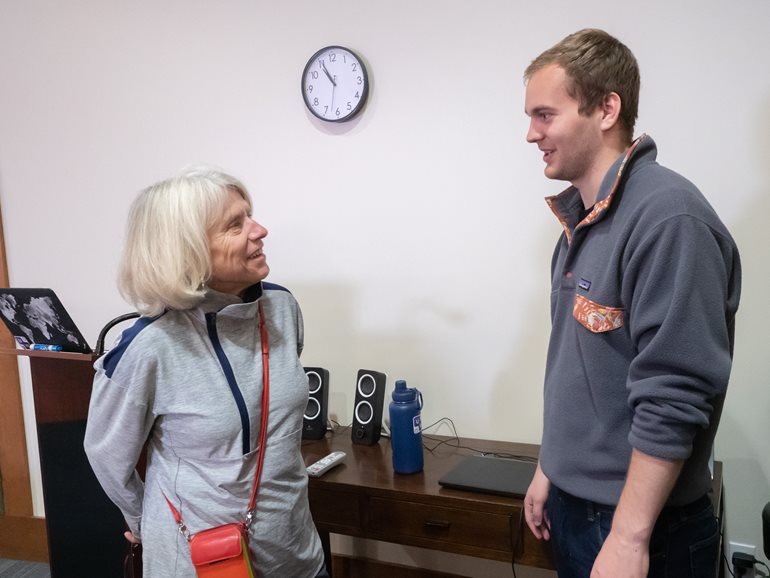
DeEtte Borden said she’s not likely to own any cryptocurrency, but she felt she was learning more than 90 percent of the public knows about blockchain, thanks to Nelson’s give-and-take. “I’m surprised we haven’t driven him crazy.”
Christine Psyk said the course demystified her confusion over cryptocurrency. “I don’t have to have Bitcoin or any of these other currencies to benefit from blockchain,” she said, adding the course was fun. After the first class, “I came back.”
In that second class on Oct. 12, Nelson talked about the volatility of cryptocurrencies and showed graphs of their sudden rise and abrupt fall in a “hump and dump” pattern. But, when it came to blockchain, “real innovation is happening,” he said. “You can’t fake a blockchain.”
It has applications, Nelson explained, in securing data, ensuring quality and protecting intellectual property. “This is where I see this going, for sure,” he said.
Nelson said his own experience has been like “finding out about the internet before everyone else.” It was just February 2017 when he first formed the student club, which is advised by UW Bothell School of Business Dean Sandeep Krishnamurthy and computer science Associate Professor Bill Erdly.
Since then, the club has given Nelson and other officers opportunities to travel and meet with other student groups and emerging businesses.
Global experience
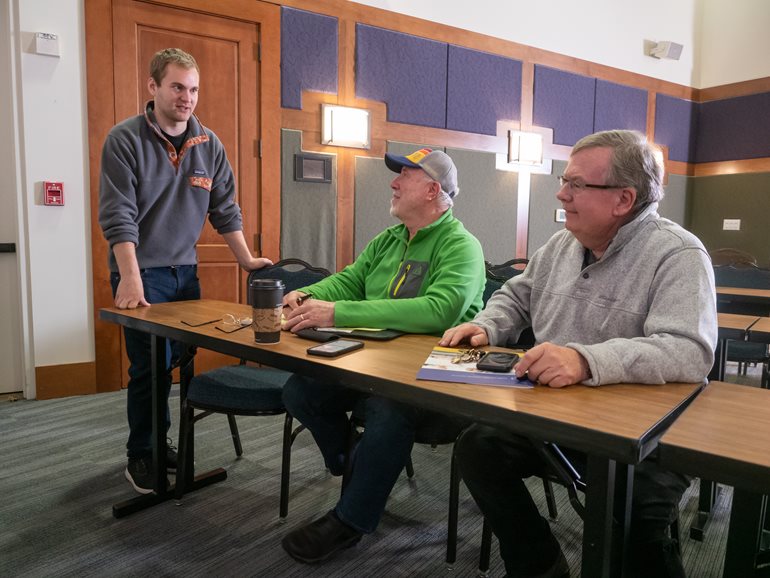
Nelson was a marketing intern last summer in San Francisco at Ripple, a company that says it will enable the world “to move value like it moves information today.”
He worked for Appsolutely, a company based in Manila, developing a digital consumer loyalty program. He’s still working with the BlockVenture Coalition, a New York venture capital firm that partners with university groups. In addition, Nelson helped create Blockchain Northwest, a nonprofit that can transact business with companies and thus pay students for projects.
Because of his international business experience, Nelson added a Global Studies major to his Media & Communications Studies major, both in the School of Interdisciplinary Arts & Sciences. He plans to graduate in the spring.
Nelson said he would like to see blockchain courses in the UW curriculum to launch more Huskies into entrepreneurial careers in the fast-moving field.
“Students are interested in this. Companies are doing this. It’s really become a fundamental piece of what students should be learning,” he said. “I wanted to be one of the first ones to help bring it to UW.”

